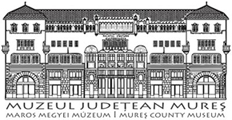Marisia - Maros Megyei Múzeum Évkönyve 23-24. (1994)
I. Arheologie
CELTS AND GERMANS IN DACIA Celto-Germanic ethno-cultural elements in the Trajanic province ADRIAN HUSAR Numerous military and civilian elements immigrated into Dacia from the provinces of Celtic and Celto-Germanic1 substratum during and after the conquering campaigns. Among the ethnical and cultural (religions) elements coming from Occident, those from the territories of Celtic and Celto-Germanic substratum constitutes a numerous group, having a considerable weight in the spreading of the Roman provincial civilization in Dacia. Beside the units of the Roman imperial army (the legio XIII Gemina and the auxiliary troops - alae and cohortes which wear Celtic or Germanic ethnicons), a considerable number of civilian elements settled in Dacia, as the Celtic proper names2 (more than 70) are proving it. As far as their quantitative - numeric spreading, there can be mentioned a disparity between Dacia Superior (more numerous Celtic names) and Dacia Inferior (their occurance is sporadic). Thus, in the etho-demographical structure of Dacia entered - in a smaller amount than the Italics, Greek-Orientals, lllyrics-. Celtic and Germanic colonists, which can be mainly identified by nomina Celtica et Germanica. In the context of the wide colonization initiated by Trajan,3 the Celtic and Germanic colonists arrived in Dacia soon after the new province had been constituted. The occurance of a Romano-Celtic temple at Sarmizegetusa within Aesculapius and Hygia' sanctuary can't be but the result of the colonization since very early of the city, of some romanizated elements of Celtic or Germanic origin.4 However, persons of Celtic origin had been identified in the economical and military centres of the Roman Dacia at Apulum, Sarmizegetusa, Drobeta, Potaissa and Porolissum. Seldom, the colonists mention their ethnicity5 or only the territory, in a broader meaning: 1 The Celto-Germanic composite referres to the Rhenanian ethno-cultural area where, the Celtic population were mixted up with Germans. 2 l.l. Russu. in /' Onomastique latiné. Colloque internationaux du CNRS, no.564, Paris, 1977, p. 363. 3 Eutropius, VIII, 6,2. 4 M.J.T. Lewis, Temples in Roman Britain. Cambridge, 1966, p.10, apud H.Daicoviciu, D.AIicu, in ActaMN, XIX, 1982, p.71. 5 l.l. Russu. op.cit.. p.359
